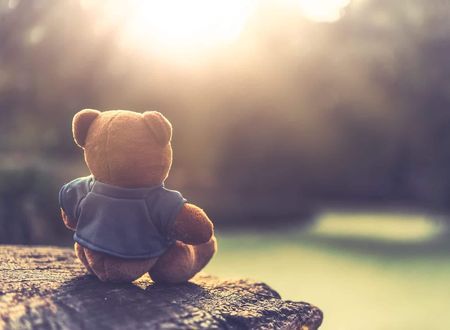Loneliness Vs. Solitude
Know The Difference Series.
Part-3.
—
Let’s delve into today’s Know The Difference Series with these two words—loneliness and solitude. They sound similar, but they have a world of difference.
Loneliness Vs. Solitude
Let’s get the fundamentals right.
Everybody feels lonely sometimes. But solitude is not a feeling, it’s a state. Loneliness is a very common feeling. People of all ages, even children, feel lonely sometimes. But to be in solitude is a conscious choice. Nobody can go into solitude unwillingly. That’s not solitude, that’s solitariness! Forcefully going into solitary state is not a wise thing to do. But one who wants to go into or remain in solitude must first overcome his or her loneliness. Otherwise, one cannot. And it’ll be a very painful experience for that person.
We are social animals. Isolation is a nightmare for us. Whenever we feel disconnected or isolated from our loved ones and others, we feel lonely. Sometimes, even if everything is alright, you may still feel lonely. Have you ever felt lonely on a rainy day? I have. Poets and artists are especially susceptible to rainy days. It has a melancholic aura about it. And nights! Lonely people suffer more at nights. Don’t know why. Anyway.
Every human heart, sometimes or other, experiences loneliness. While it’s a common feeling, severe loneliness can drastically disrupt our lives. The World Health Organization (WHO) has said, loneliness is the greatest cause of lifestyle disability in the world. And 40 people are committing suicide every second! Coping with loneliness and other lifestyle difficulties—such as stress, depression, anxiety, emotional loss and pain, various types of pressures—needs deep skills. Olderly people living in old age homes, persons with mental problems and orphans are especially at risk. Loneliness kills more people every year than smoking does! If you are suffering from loneliness or you see someone suffering, reach out, connect. Join a group or a class. And help others by including them in whatever way possible.
Now, why do people seek solitude? Some may want to be in solitude simply to avoid others, to have some peace. That’s perfectly okay. It’s also a kind of rest—social rest. By the way, just to give you a reference, Dr. Saundra Dalton-Smith from New York has a book on rest—The Sacred Rest. In that book, she has pointed out 7 types of rest which everyone should be aware of. Social rest is one of them. Little periods of solitude helps us relax our stressed souls, and gives us the much needed me-time. But, solitude is also a spiritual practice. People who are on the path of sadhana often go into long periods of solitude. They totally cut themselves off from all human interaction. In the path of sadhana, solitude is actually necessary. But we can leave that aspect now. What we have to understand is that solitude must be a conscious choice. Whereas loneliness comes from a sense of isolation, when our deep longing to connect with others is not fulfilled. So, loneliness comes from a lack, but going into solitude is a voluntary step.
Last Words
Loneliness has to be understood. And solitude has to be chosen. Loneliness is a form of suffering. But solitude is a conscious enjoyment. A different kind. Loneliness will be there as long as you are not independent inwardly. When we learn to be alone within and remain established in our ‘aloneness’ without any suffering, that’s the end of loneliness! And you can achieve that by going into solitude.
I hope the distinction is clear now.
—









Comments & Discussion
9 COMMENTS
Please login to read members' comments and participate in the discussion.